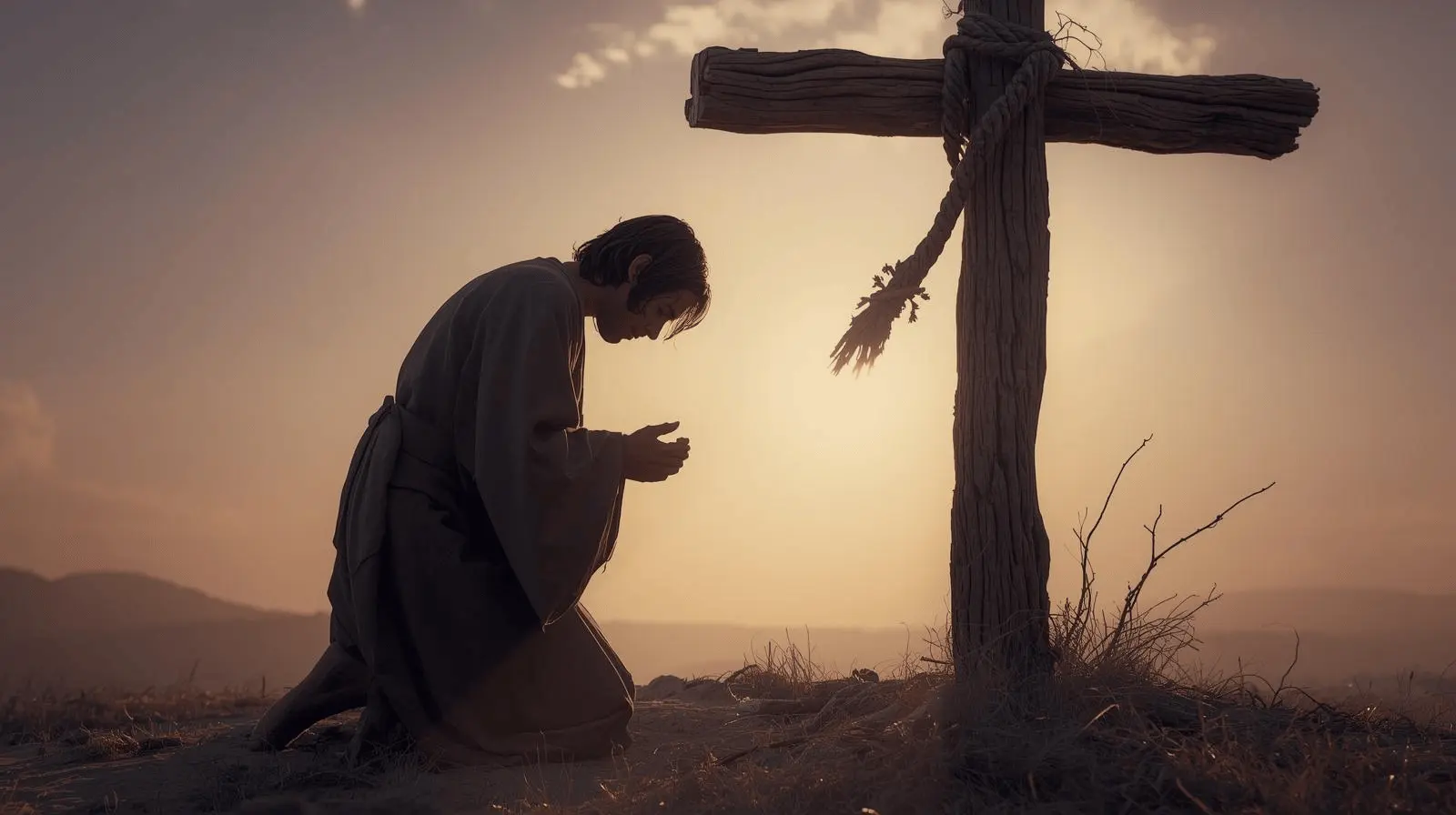Salvation is one of the central themes of Christianity, representing the hope, transformation, and eternal promise given through Jesus Christ. While many believers know salvation as a gift from God, its depth is best understood by exploring the different elements that make it complete.
1. Grace: The Foundation of Salvation
Grace is the beginning of salvation, the unearned favour of God that makes redemption possible. Humanity cannot earn God’s forgiveness; instead, it is offered freely through the sacrifice of Jesus Christ.
God’s Gift of Grace
As Ephesians 2:8-9 declares, “For by grace you have been saved through faith. And this is not your own doing; it is the gift of God, not a result of works, so that no one may boast.” Grace ensures that salvation is based on God’s mercy, not human achievement.
Living in Grace
Believers are called to walk in grace daily. It empowers them to forgive others, extend kindness, and remain humble, knowing their standing before God is rooted in His love rather than their own merit.
Also Read: How to Preach About Salvation So People Truly Understand the Gospel
2. Faith: Trusting in Christ
Faith is the response to grace, the act of trusting in Jesus Christ as Lord and Savior. Without faith, grace cannot be received, making faith essential for salvation.
Believing in the Gospel
Faith involves believing that Jesus died for our sins and rose again. Romans 10:9 explains, “If you confess with your mouth that Jesus is Lord and believe in your heart that God raised him from the dead, you will be saved.” This belief moves beyond knowledge to personal trust in Christ.
A Life Marked by Faith
True faith is active, producing works of love and obedience. It is not stagnant but grows stronger as believers depend on God in every circumstance.
3. Repentance: Turning from Sin

Repentance is more than regret; it is a complete turning away from sin and turning toward God. It reflects a change of heart and direction in life.
The Call to Repent
In Acts 3:19, Peter preaches, “Repent therefore, and turn back, that your sins may be blotted out.” Repentance is a requirement for forgiveness and renewal.
Daily Repentance
Christians practice repentance daily, acknowledging their sins and seeking God’s help to overcome temptation. This ongoing process keeps hearts tender and aligned with God’s will.
4. Confession: Declaring Faith Publicly
Confession is the open declaration of one’s faith in Jesus Christ. It demonstrates both commitment to God and acknowledgment of His authority.
Confession of Faith
According to Romans 10:10, “For with the heart one believes and is justified, and with the mouth one confesses and is saved.” Speaking one’s faith solidifies it and strengthens the believer’s testimony.
Living Out Confession
Confession goes beyond words. It involves living consistently with one’s faith, allowing actions to reflect the reality of Christ within.
Related Posts
- Salvation in Judaism vs Christianity: Key Differences
- Genesis 19 Sodomy Meaning: The True Sin of Sodom and Gomorrah
- Can a Born Again Christian Date a Catholic?
5. Baptism: The Symbol of New Life
Baptism serves as an outward sign of inward transformation. It represents dying to sin and rising to new life in Christ.
The Role of Baptism
In Acts 2:38, Peter says, “Repent and be baptized every one of you in the name of Jesus Christ for the forgiveness of your sins, and you will receive the gift of the Holy Spirit.” Baptism is both a symbolic and spiritual act of obedience.
Living the Baptized Life
Baptism is not the end but the beginning of a lifelong journey with Christ. It calls believers to walk in holiness and continually reflect the new life they have received.
6. Sanctification: Growing in Holiness

Sanctification is the process by which believers are made holy, becoming more like Christ through the work of the Holy Spirit.
The Ongoing Journey
Sanctification is gradual and lifelong. 1 Thessalonians 4:3 teaches, “For this is the will of God, your sanctification: that you abstain from sexual immorality.” Growth in holiness is evidence of genuine faith.
Tools for Sanctification
Prayer, Bible study, fellowship, and obedience are vital tools in sanctification. Each draws believers closer to God and shapes their character to reflect Christ.
7. Endurance: Persevering in Faith
Endurance, or perseverance, is the commitment to remain faithful to God until the very end. Salvation is not just about starting the journey but finishing it.
The Call to Persevere
Jesus emphasizes endurance in Matthew 24:13, saying, “But the one who endures to the end will be saved.” True salvation is demonstrated by a life of steady faithfulness.
Strength for the Journey
Believers endure through trials with the strength that comes from the Holy Spirit. Perseverance is fuelled by hope in eternal life and the promise of God’s unfailing love.
8. Justification: Being Declared Righteous
Justification is the act by which God declares a sinner righteous through faith in Jesus Christ. It is not about becoming sinless instantly, but about being seen as righteous because of Christ’s sacrifice.
The Legal Standing Before God
Romans 5:1 says, “Therefore, since we have been justified by faith, we have peace with God through our Lord Jesus Christ.” Justification removes guilt and establishes peace with God.
Living Justified
Being justified motivates believers to live in gratitude and obedience, knowing their right standing with God comes through Christ alone.
9. Regeneration: The New Birth

Regeneration is the spiritual rebirth that takes place when someone becomes a believer. Often called being “born again,” it signifies the inner transformation of the soul.
The New Creation
As 2 Corinthians 5:17 declares, “Therefore, if anyone is in Christ, he is a new creation. The old has passed away; behold, the new has come.” Regeneration changes the believer’s nature, making them alive in Christ.
Evidence of Regeneration
The evidence of regeneration is seen in a transformed life — new desires, attitudes, and behaviours that align with God’s will.
Embrace the Fullness of Salvation
By embracing all seven aspects, Christians not only understand salvation more deeply but also live it out more fully. As believers continue to walk in grace, faith, and perseverance, they bear witness to the power of the Gospel in every area of life.
For deeper theological study, resources such as Bible Gateway provide accessible Scripture references to explore these truths further.
Frequently Asked Questions
Is salvation a one-time event or a lifelong process?
Salvation is both. It begins with a moment of faith and repentance but continues through sanctification and perseverance as believers grow in Christ throughout their lives.
Do all nine elements of salvation happen at once?
Some elements, like justification and regeneration, occur immediately at the moment of conversion, while others, like sanctification and endurance, are lifelong processes.
Why is baptism considered important for salvation?
Baptism symbolizes the believer’s union with Christ in His death and resurrection. While it is not the means of salvation itself, it is a public declaration of faith and obedience.
Can salvation be lost?
Different Christian traditions hold varying views. Some emphasize eternal security, while others stress the need for perseverance. What remains clear in Scripture is the importance of enduring faith.


5 thoughts on “7 Key Elements of Salvation Every Christian Should Know”